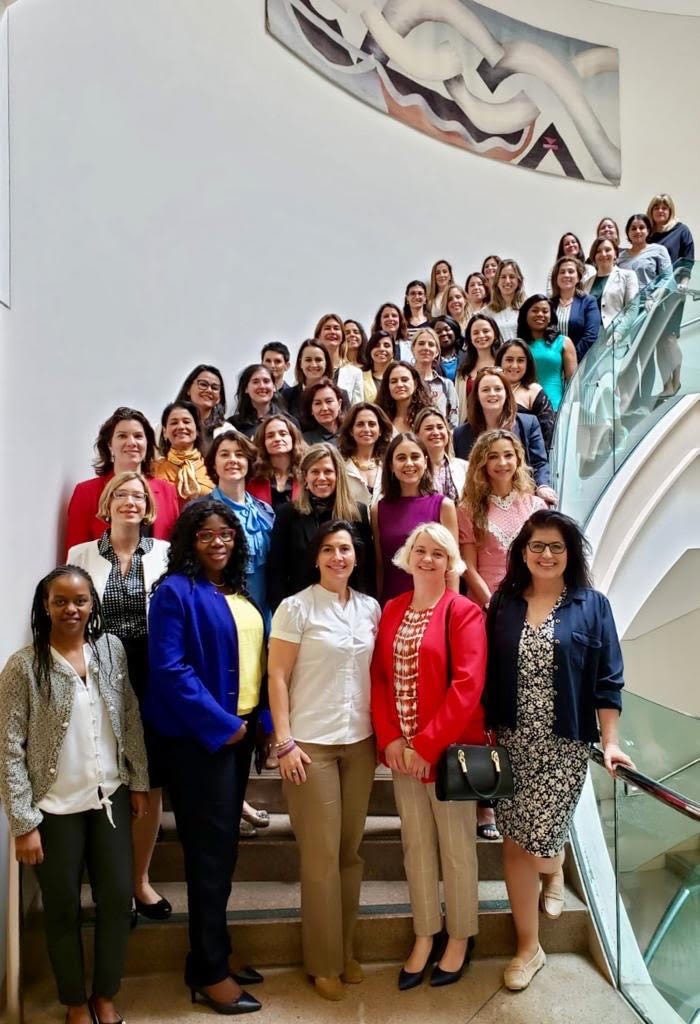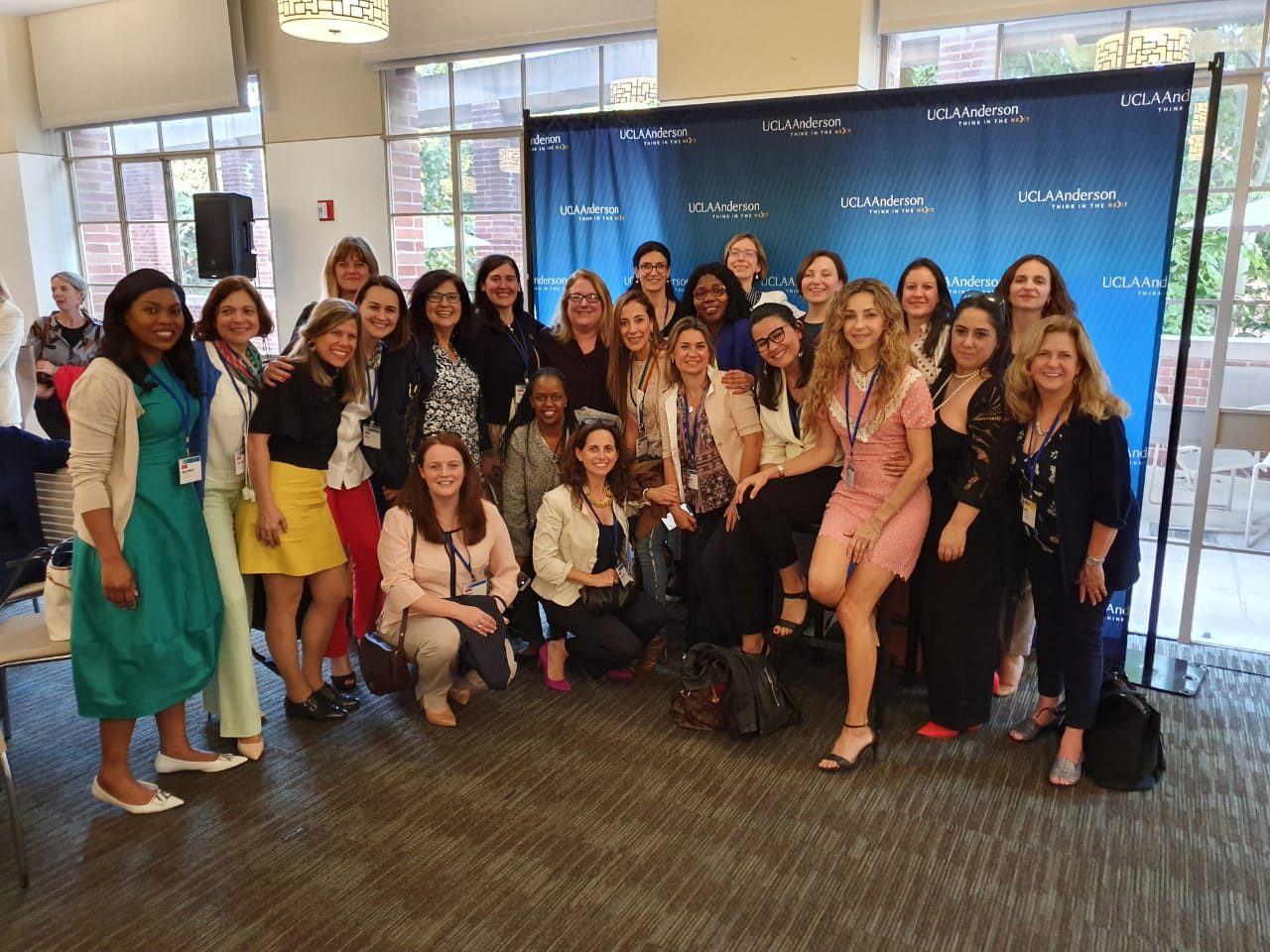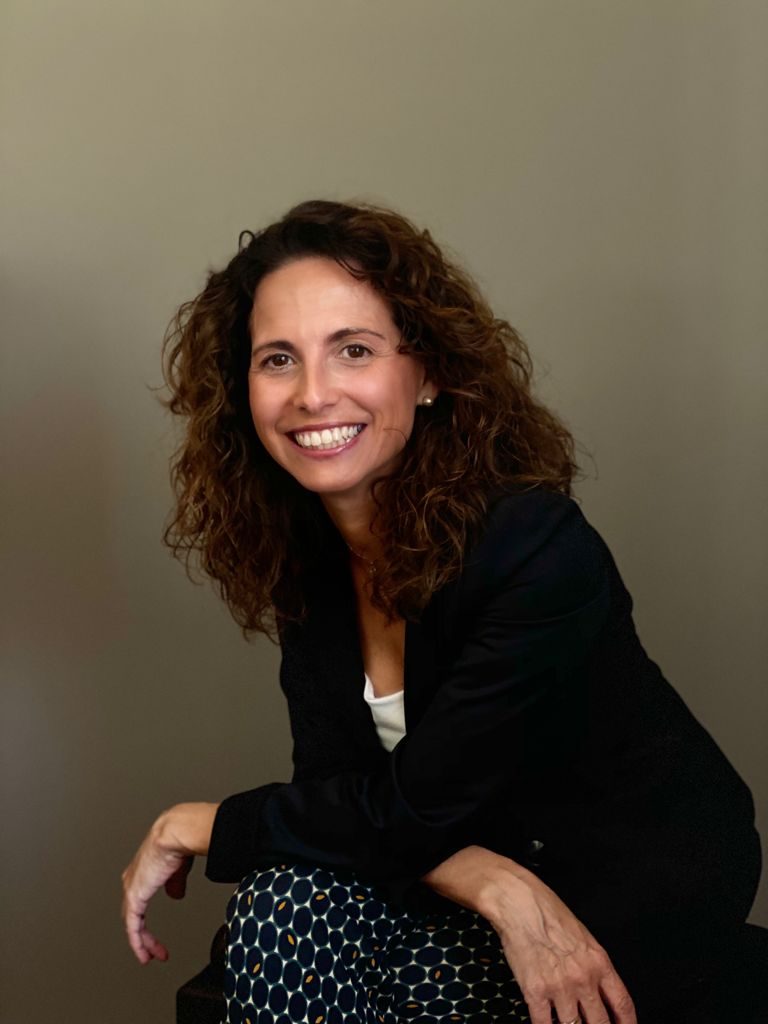The importance of continuous learning to achieve leadership positions - Montse Puig and Laura Fitzgerald
As the application deadline for the Santander Course | SW50 Leadership Programme 2024 - LSE is fast approaching, we took the opportunity to speak with Montse Puig from Barcelona and Laura Fitzgerald from Ireland about their experiences and learnings from the 2019 program.
Montse, a woman with an Industrial Engineering educational background, currently Chief Corporate Officer at Tangelo Games and board member of several start up companies, has a strong ambition to make the world a better place and a firm believer that everything starts with education. She is a mentor in Youth Business International.
Laura is senior counsel at Udemy, where she leads the regional legal function for EMEA and APAC. Passionate about ethics, Laura possesses strong emotional intelligence. It is no coincidence that Laura works with a number of charity organizations such as Barretstown, a non- profit rebuilding the lives of children affected by cancer.
What is the Santander Course | SW50 Leadership Programme – London School of Economics?
The Santander Course | SW50 Leadership Programme - LSE is a unique leadership experience focused on training the future Board Level and C-Suite women leaders.
It is a cutting edge program that delivers accelerated executive training on management, board governance, strategy and risk, networking and is complemented by personalised training on identifying each participants own unique strengths and developing these strengths, interests (and weaknesses) to empower participants progress in their career.
The purpose of Santander Course | SW50 Leadership Programme - LSE is to achieve equality at top level management.
This is thoughtfully done by upskilling participants through executive education to enable each participant to disrupt and challenge the status quo on returning to their industry after completion of the program.
Good morning Montse and Laura, thank you both for speaking with us today. Why don’t we start with you Montse:
Interviewer: What was the most important aspect ofthe Santander Course | SW50 Leadership Programme – London School of Economics?
Montse: It is a program for women leaders that really has an impact on you.
The dynamics and knowledge gained by the opportunity to sit on a Board of Directors are clear and tangible insights of the Program provided by first-class professors at UCLA. However, the knowledge from the board alone is not enough to be impactful and drive company growth.
It’s the relationships among different directors on a board and the combination of different viewpoints fuelled by diversity. Not only in regards to gender, but also in relation to culture, place of origin, religion, age, educational background, family – all of these different characteristics help build a team that enrich one another, the entire board, and ultimately, the enterprise they are governing.
All these insights and contents from the program are being carried forward and amplified by the highly qualified and diverse program participants. It was certainly a bonding experience.
On the first day of the program, we were just participants, now we are friends, colleagues, and mentor each other on an on-going basis, regardless of the distance between us.
Montse Puig, Chief Corporate Officer at Tangelo GamesInterviewer: You are introducing yourself as a ‘firm believer that everything starts with education’. Could you elaborate on that?
Montse: Sure!
First I will just ask you (or the audience) three questions:
- What were the best performing stock markets in 2020?
- What countries have the most number of patents per million population?
- Which countries have the most of universities in the Top 50 Global ranking?
The five countries that are part of the answers to the above three questions are: USA, South Korea, Japan, China, and Switzerland.
We very well know the differences among these countries politically, culturally and geographically, to mention just a few differences. But…what do these countries all have in common that results in performing so highly in all of the above questions?
These are the countries most investing in both Education and R&D.
These countries got where they are today as a result of having planned and made long term investments in research and technology that started years upon years ago., First starting by investing in education for their youth and providing necessary resources in research capabilities for universities, institutions, and companies.
No long-term investments in education and R&D lead countries to poverty.
Interviewer: Interesting. What’s your vision here?
Montse: In my native Spain I believe we need to immediately start investing in an Higher Education system that empowers and facilitates our students to research the unknown. We need to invest in the technology and means for our youth to make a meaningful impact to our country and consequently the world.
We need to put in place undergraduate programs that not only ‘teach’ math or physics, but also invest in programs and systems that stimulate students’ creativity and passion for learning and entrepreneurship.
Interviewer: Which would be the key elements of such undergraduate programs?
Montse: First of all, they have to be student-centered programs where each student can pick their subjects of interest and build their own development plan within STEM disciplines.
It goes without saying that investment in technology is tantamount as this enables students and faculty from all over the world to learn and contribute whenever is most suitable for everyone.
STEM disciplines will be at the center of the programs. This will enable students to be inspired by best-in-class faculty who will encourage students to become active participants in the program - participating in class discussions and arousing their curiosity to go beyond their limits.
Per my earlier note about diverse lived experiences being a key benefit of the W50 Board of Directors, it is imperative that equal opportunities exist for all students and their mental and physical wellbeing are considered by designing a variety of undergraduate programs.
This is my vision on how we can make our country, and the world, better.
I am focusing on Higher Education in my vision, however, the world is constantly changing,-as we’re experiencing firsthand with the current pandemic- and we, as humans, can better lead that change through lifelong learning.
Montse Puig, Chief Corporate Officer at Tangelo Games
Good morning Laura, thank you for participating in the discussion today.
Interviewer: What was the most important aspect of the W50 for you?
Laura: A strong theme that carries through the W50 program is the importance of continuous learning and upskilling to address the changing workforce and rapidly evolving technology, regulation, compliance and legal frameworks.
Upskilling and continuous learning is critical for the C-suite and their organisations to continue to evolve to meet the challenges of the transforming world, changing business models and technological developments.
A recent PWC report highlighted the increasing plight automation is on the workforce, “Women workers could be more affected by automation over the next decade, but male jobs could be more at risk in the longer term.” Women’s participation in science, technology, engineering, and mathematics (STEM) continues to have a low representation. As Monserrat points out, improved STEM skills (particularly for women), will be important as automation increases and new technology jobs emerge over the coming years.
The world of work is changing dramatically and the benefits of automation and AI to businesses are compelling and cost effective. Although varying by industry, the advent of automation will substantially impact the traditional workforce. To mitigate this, companies and countries will require substantial workforce retraining and upskilling in order to improve workforce mobility particularly with an aging workforce and an economy where people may need to retire later in life.
Board members and leadership teams now recognise that human capital is a company’s greatest asset and learning is a necessity to stay competitive and drive innovation. Leadership are now shifting focus on recreating growth and need to establish a mindset of reinvention and renewal in order for their organisation to thrive.
Organisations are going to have to move towards upskilling the workforce to leverage the collective intellectual capital and create a mindset of innovation, growth, resilience and agility within teams.
Laura Fitzgerald, Senior Counsel at UdemyInterviewer: What can companies do?
Similar to the Banco Santander and the Santander Course | SW50 Leadership Programme - LSE, Udemy has a similar vision for both employees and the world and “Always Learning” has been established as one of its four core values.
Fostering and encouraging a culture of curiosity, learning and training across the workplace benefits the entire organisation. As leadership tries to address the widening skills gap in all areas of the workforce, upskilling allows teams to maximise their full potential and the contributions of all team members while broadening perspectives, diversity of thought and reducing compliant mindsets.
As companies moved into the new world of remote work in 2020, it became very clear that in order to build organizational resilience and weather the post-pandemic storm, leaders and employees alike must prioritize learning and skill development. In this new normal, digital learning is a critical way to build business agility and empower employees to take control of their path forward—whether it’s learning how to effectively work remotely, improve personal or professional skills, or upskill to maintain career momentum.
This has forced organisations to adopt flexible access to learning resources and a more relaxed approach to training. Leaders are recognising that digital learning can provide support far beyond the traditional learning class-based approach and makes upskilling far more engaging, relevant and empowering for workforces.
Interviewer: Are you seeing companies starting to move in this direction?
Yes, companies recognise that not investing in employee training is no longer optional. This transition has been accelerated by the COVID-19 pandemic with companies seeking less traditional options such as educational technology (EdTech) to upskill, engage and incentivise their workforce. The future of work and impact of automation reports from companies such as McKinsey and PWC further support the call for this urgent transformation.
Because of online learning, employee training no longer needs to be restricted to a small number of employees or use a one size fits all approach. Instead, learning can now be personalised and adaptive so teams and individuals can benefit from more targeted offerings and learning pathways specific to their career and designed by the company leadership.
Continuous learning benefits everyone and serves the wider interests of the overall economy by creating an ecosystem of a well-educated, skilled and agile workforce.
You may have seen a recent report by the World Economic Forum (WEF) announcing a 10 year strategy to close the skills gap through a “Reskilling Revolution” that aims to upskill 1 billion people by 2030. The WEF believes that this “wide-ranging investment in upskilling has the potential to boost GDP by $6.5 trillion by 2030.” These reports and findings cannot be ignored. This WEF private-public partnership is the start of the world beginning to recognise and address the challenge ahead.
INTERVIEWER: That was a very compelling and enlightening discussion. Thank you both for speaking with me today. It is clear that you have established a very strong relationship both professionally and personally through the Santander Course | SW50 Leadership Programme - LSE.
It is wonderful to see you both sharing a passion for education and making such an impact – you both have very different backgrounds and this shows how diversity of thought enriches the world when people are brought together through programs such as the Santander Course | SW50 Leadership Programme - LSE.

Continuous learning and collaboration between women, two values of Santander Course | SW50 Leadership Programme - LSE.
Montse Puig and Laura Fitzgerald felt the need to improve their leadership skills at a certain point in their professional careers and, obviously, they are not only united by their participation in a program that aims to equip the new generation of women leaders, but also by a firm conviction that continuous learning is the key to improve as individuals and as companies. Both of them have had very different previous training and professional careers and they are an example of how diversity and collaboration, two values that are very present in the Santander Course | SW50 Leadership Programme - LSE, can be very enriching.
If, like them, you feel that it is time to boost your professional career, you want to improve your leadership skills and you have more than 10 years of professional experience, apply for the Santander Course | SW50 Leadership Programme 2024 - LSE. Seize the opportunity!
(At the moment the Santander Course | SW50 Leadership Programme 2024 - LSE has reached its end, but we encourage you to take a look at the Santander Open Academy website to find the training that best suits you and give a boost to your professional career. Seize the chance to develop your knowledge and skills!)

Montse Puig, Chief Corporate Officer at Tangelo Games

Laura Fitzgerald, Senior Counsel at Udemy
More interesting posts to read...
-
 12/04/2024 | Santander Universidades
12/04/2024 | Santander UniversidadesGrowth mindset: examples in the workplace to develop the right attitude toward challenges
Card text -
 01/03/2024 | Santander Universidades
01/03/2024 | Santander UniversidadesThe sandwich technique: how to deliver criticism in an assertive way
Card text

